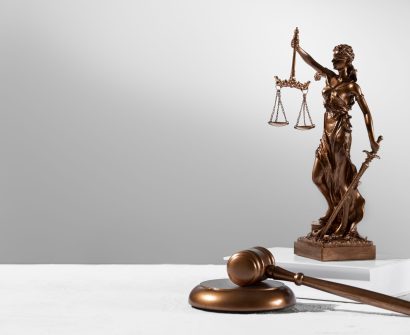
A criminal breach of trust is a complex offense that has an enormous impact on individuals, organizations, and society at large. Fundamentally, it’s basically one side betraying another’s trust, which typically ends in financial damage, psychological suffering, and an overall decline in the trust of the public. Such breaches have far-reaching ramifications that go well beyond the immediate losses in money; they also have an impact on the integrity of organizations, relationships between individuals, and public trust in institutions.
criminal breach of trust
- To put it simply, a criminal breach of trust occurs when an accused individual creates or modifies another person’s property for his own benefit, which is an offense against the property’s best interests.
- The property is transferred with a relationship between the transferor and the transferee, whereby the transferor maintains legal ownership.
- Nonetheless, it is under the custody or control of the transferee for the benefit of the transferor or another party.
Section 405 of IPC
- The criminal breach of trust offense, as defined by Section 405 of the Indian Penal Code, pertains to any individual’s mistreatment of real estate, whether it is immovable or mobile, that they are entrusted with or have control over.
- When someone dishonestly appropriates, misappropriates, or disposes of property in contravention of any legal requirements or agreements pertaining to the release of such entrusted property, it is considered an offense.
- The act of knowingly permitting another person to carry out such deeds constitutes a criminal breach of trust offense.
section 406 ipc: Essentials
- It is necessary to entrust the property that the charges are filed against. Both moveable and immovable items are included in this property.
- The person has to have dishonestly abused the property, going against the obligations owed to them.
- One of the elements of the IPC, Section 405, must be violated.
criminal breach of trust examples
- A dishonest official misappropriates public funds for personal gain. A has broken the law by betraying confidence.
- While A is on the road, he gives his furniture to B, the owner of a furniture store, to fix. Instead, B sells the furnishings deceitfully. B has broken the law by betraying confidence.
criminal breach of trust punishment
- A criminal breach of trust carries a term of punishment that is outlined insection 406 ipc. The perpetrator faces a penalty of three years in prison, a fine, or both, depending on the specifics of the case.
- Only a Magistrate of the First Class may try a criminal breach of trust case because it is a cognizable offense without the ability to post bail. Additionally, the property owner regarding whom the breach of trust was committed may compound the offence with the permission of the court.
breach of trust crime: How to Prove It?
Certain key elements need to be available for a criminal breach of trust. In order to demonstrate a criminal breach of trust, the following elements must typically be proven:
- Property Given to the Accused: The individual who subsequently violates the terms of the agreement must receive the property. The offense cannot be shown without the original act of entrusting.
- Dishonest Misappropriation or Conversion of Property: The accused must knowingly force another person to utilize the entrusted property improperly or dishonestly misappropriate or convert it for their own benefit.
- Breach of Law, Contract, or Trust: A breach of trust occurs when one party violates a law, contract, or trust that regulates the other party’s relationship with the other party.
criminal breach of trust: Case Laws
- In Rashmi Kumar v. Mahesh Kumar Bhada, the Supreme Court held that it is a criminal breach of trust for a husband or designated family member to wilfully misappropriate or steal a wife’s stridhan property for his benefit, or to provide permission to someone else to do so.
- The accused in the case of State of Uttar Pradesh v. Babu Ram was a sub-inspector who looked into a theft case in a hamlet. The Supreme Court decided that the victim expected the accused to return the money once he was satisfied, and that the cash notes were given to the sub-inspector for a specified purpose. In the event that the accused had taken the money notes, Section 406 of the IPC would have been applicable as it would have been a criminal breach of trust.
A person who is entrusted with property or assets and dishonestly misappropriates or transforms it for their own use or for the use of another party in contravention of the terms of the entrustment is guilty of a crime breach of trust offense. It entails a betrayal of the confidence put in the person in charge of the property. It is considered a property offense.
A number of essential components must come together to form the criminal offense of breach of trust, such as the entrustment of property, the dishonest theft or conversion of the property, and the accused’s breach of law, contract, or trust. Depending on the jurisdiction and the seriousness of the violation, the punishment for this offense might vary, but it usually entails either jail, fines, or both.
Criminal Breach of Trust FAQs
- How to prove a criminal breach of trust?
For there to be a criminal breach of trust, there must be proof of the intention to misappropriate. To trigger the provisions of Section 406 IPC, the complainant must establish prima facie that the petitioner or others had the intention of misleading or defrauding the complaint from the beginning.
- What is a dishonest intention in criminal breach of trust?
The accused must have had the malicious intent to defraud the person who entrusted the property or to obtain an unfair benefit. The accused must have known or believed that there would be unjust gain or loss as a result of his act of misappropriation or conversion.
- What legal action can be taken for breach of trust?
Since criminal breach of trust is a crime, Section 406 of the Indian Penal Code specifies the appropriate punishment. Accordingly, Sections 405 through 409 of the Indian Penal Code address the matter of criminal breach of trust and specify the penalties for such offenses.
- How do you defend a breach of trust?
Whether there was no breach or a breach but no damage occurred, the simplest defense a trustee can mount against a claim of breach of trust is to argue that the allegation is without merit.
- Which IPC deals with criminal breach of trust?
Anybody who violates Section 406 of the IPC faces up to three years in prison, a fine, or both as a form of punishment for criminal breach of trust.
- Which Online rjs coaching is best for RJS preparation?
The reputable Jaipur Online rjs coaching program “Jyoti Judiciary Coaching” aids students in getting ready for the RJS exam. A systematic approach to RJS test preparation is made possible by Jyoti Judiciary, the top offline and online RJS coaching program in Jaipur. Their curriculum has been carefully designed to cover all the subjects and courses required for passing the Rajasthan Judicial Service Examinations.
- Which coaching is best for judiciary?
The most effective judiciary coaching in Jaipur is provided by Jyoti Judiciary Coaching. The objective is to create a comfortable learning environment for the students. It makes the difficult task seem easy, which increases the likelihood of achieving the desired outcome. The objective at Jyoti Judiciary is to give students the best possible education possible. The Institute pledges to use every resource at its disposal to provide you with the finest preparation for the Judicial Services entrance examinations.
With the goal of giving students the best coaching available for law entrance exams including the CLAT, AILET, and various other numerous state judiciary exams, Jyoti Judiciary Coaching, India’s Finest educational Platform, was established. Come enrol now with Jyoti Judiciary!
For any latest news, legal topics, judiciary exams notifications, patterns, etc watch Jyoti Judiciary’s YouTube channel for legal videos for any updates at https://youtube.com/@jyotijudiciarycoaching4852?si=2cwubh9d2A9urwJf










